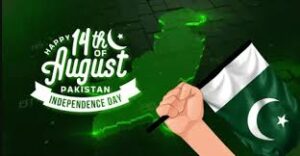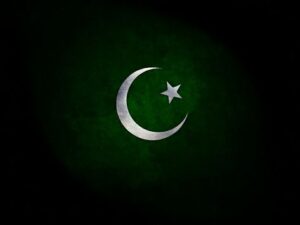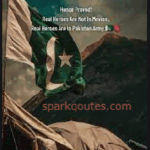Introduction
Every nation has a defining moment—an event that shapes its destiny and becomes the compass of its identity. For Pakistan, that moment came with the Emerald Dawn of 14 August 1947. More than just a date, it marked the realization of a dream—a homeland born from unity, struggle, sacrifice, and faith. This “emerald dawn” was not just the beginning of a sovereign state, but a spiritual awakening for millions. It symbolized resilience, hope, and the unbreakable spirit that continues to define Pakistan.
This article explores the origins, symbolism, struggles, and evolution of Pakistan’s independence, all under the unifying and profound theme of “The Emerald Dawn.”
1. What Does “Emerald Dawn” Mean?
The phrase “Emerald Dawn” is rich with meaning:
-
Emerald: Symbolizes the lush green of Pakistan’s flag, representing prosperity, peace, and Islam. It’s a precious gem, reflecting the value and beauty of the country.
-
Dawn: Represents new beginnings, hope, and the transition from darkness to light.
-
Together, Emerald Dawn paints a poetic picture of Pakistan’s birth as a hopeful, precious, and powerful event in history.
This metaphor encapsulates Pakistan’s emergence from the chaos and oppression of colonial rule into the light of freedom, despite overwhelming odds.

2. The Road to Independence: Struggles in the Shadow
The journey to 14 August 1947 wasn’t sudden. It was the result of decades of political struggle, sacrifice, and a vision that refused to die. Under British colonial rule, the Muslims of the subcontinent feared marginalization in a Hindu-majority independent India.
Key Milestones:
-
Sir Syed Ahmed Khan emphasized Muslim education and political awareness.
-
Allama Iqbal dreamed of a separate homeland in his 1930 Allahabad address.
-
The Lahore Resolution (1940) formally demanded a separate Muslim state.
-
Quaid-e-Azam Muhammad Ali Jinnah emerged as the unshakable leader of the Pakistan Movement.
Thousands of Muslims united under one banner—Azadi (freedom)—despite persecution, jail terms, and political obstacles. This spirit laid the foundation of Pakistan’s emerald dawn.
3. The Partition: Pain Wrapped in Hope
While independence brought celebration, the partition of India and Pakistan brought unspeakable pain, migration, and violence. Over 10 million people crossed borders—many on foot—seeking safety in either India or Pakistan. Tragically, up to 2 million people lost their lives in communal violence.
Yet, the spirit remained unbroken.
Families rebuilt. New towns emerged. Citizens planted seeds of new beginnings in unfamiliar soil. Even amid destruction, Pakistan’s emerald dawn burned bright—a testament to faith, resilience, and unity.
4. The Unbreakable Spirit of a New Nation
Pakistan’s first few years were immensely challenging: refugee crises, lack of infrastructure, administrative confusion, and economic pressure. But the will of the people refused to bend.
Institutions born from hope:
-
State Bank of Pakistan (1948)
-
Pakistan Army’s reorganization
-
Karachi as the initial capital hub
-
Constitutional Assembly efforts for governance
Jinnah’s speeches instilled confidence. The early citizens worked tirelessly to set up schools, markets, banks, and public services. The unbreakable spirit of Pakistanis turned uncertainty into possibility.
5. Cultural and Religious Identity
At its core, Pakistan was envisioned as a Muslim-majority country where religious minorities could also live in harmony. The green in the flag represents Muslims, and the white strip symbolizes minorities—a peaceful coexistence.
Cultural roots of the Emerald Dawn:
-
Poetry of Allama Iqbal infused spiritual power.
-
Sufi saints and shrines unified diverse ethnic groups.
-
Islamic principles formed the backbone of policies, education, and daily life.
Through arts, literature, and music, a unique Pakistani identity blossomed—one that fused history with faith, and local traditions with a broader Islamic worldview.
6. Trials Through Decades: A Resilient Nation
Pakistan’s journey has not been without difficulties. Wars, natural disasters, political instability, and economic setbacks have tested the nation.
Major Tests of Resilience:
-
1948, 1965, and 1971 wars with India
-
Separation of East Pakistan (Bangladesh) in 1971
-
Military coups and disrupted democracies
-
Terrorism and extremism in the 2000s
-
Earthquakes and massive floods
In each case, Pakistanis showed incredible strength and unity. Aid poured in from the public. Volunteers helped flood victims. Civilians stood shoulder to shoulder with soldiers during national threats. This is the unbreakable spirit of the Emerald Dawn.
7. The Role of Youth: Guardians of the Emerald Flame
Today, over 60% of Pakistan’s population is under 30. The youth are the custodians of the country’s legacy and future. They are more connected, educated, and globally aware than ever before.
Youth contributions:
-
Launching startups and tech innovations
-
Advocating for education, environment, and gender equality
-
Excelling in sports, arts, and science globally
-
Defending democratic values and speaking against injustice
They are the torchbearers of the emerald dawn, tasked with making Pakistan a peaceful, progressive, and prosperous country.
8. Global Pakistani Diaspora: Spirit Across Borders
Over 10 million Pakistanis live abroad—from the UAE to the US, UK to Australia. They are ambassadors of Pakistan’s unbreakable spirit.
Contributions:
-
Remittances that fuel the economy
-
Global recognition in medicine, IT, politics, and academia
-
Cultural diplomacy through music, food, and business
-
Charities and NGOs aiding development back home
Whether it’s a doctor in Canada or a businessman in Dubai, they carry with them the dreams of the Emerald Dawn.
9. Celebrating 14 August: A Living Legacy
Independence Day in Pakistan is a time of national pride, reflection, and unity. Streets fill with flags, children paint their faces green and white, and patriotic songs echo across cities.
Traditions:
-
Flag-hoisting ceremonies in Islamabad and provincial capitals
-
Special prayers for national progress
-
Documentaries and tributes to heroes of independence
-
Cultural shows and fireworks
But beyond the celebration lies a deeper meaning—a reminder of sacrifice, unity, and responsibility. Every 14 August is a call to preserve and renew the emerald flame.

10. The Road Ahead: Challenges and Opportunities
Pakistan still faces pressing issues: climate change, political instability, education gaps, and social inequality. But every challenge is a chance to rekindle the emerald dawn with purpose and innovation.
Needed Steps:
-
Strengthening democratic institutions
-
Investing in quality education and healthcare
-
Promoting women’s empowerment
-
Fighting corruption and improving governance
-
Embracing sustainability and green technology
A resilient nation knows how to evolve. The real question: Will we choose fear, or will we live by faith and action?
11. Honoring the Heroes of the Dawn
Independence didn’t come without sacrifice. Countless people—known and unknown—contributed to the birth and survival of Pakistan.
Just a few to remember:
-
Muhammad Ali Jinnah – The founder and father of the nation.
-
Fatima Jinnah – The mother of the nation and advocate of women’s rights.
-
Liaquat Ali Khan – The first Prime Minister who laid institutional foundations.
-
Abdul Sattar Edhi – Embodiment of humanity and service.
Their legacy is a responsibility we all share.

Conclusion: Living the Emerald Dawn Every Day
The Emerald Dawn is not just a poetic idea—it’s a living truth. It speaks of a people who rose from darkness to light. It speaks of courage stronger than chaos, and faith brighter than fear.
Today, each Pakistani carries a piece of that dawn:
-
In every act of kindness
-
In every vote cast with conscience
-
In every student burning the midnight oil
-
In every entrepreneur trying to innovate for good
Pakistan’s emerald dawn lives on—not just on 14 August, but every single day we strive to be better citizens.
So let us not only wave the flag—let us live it.
Let us rise, rebuild, and recommit.
Because the unbreakable spirit of 14 August was never about a moment—it’s about a movement.
And it continues—with you.














